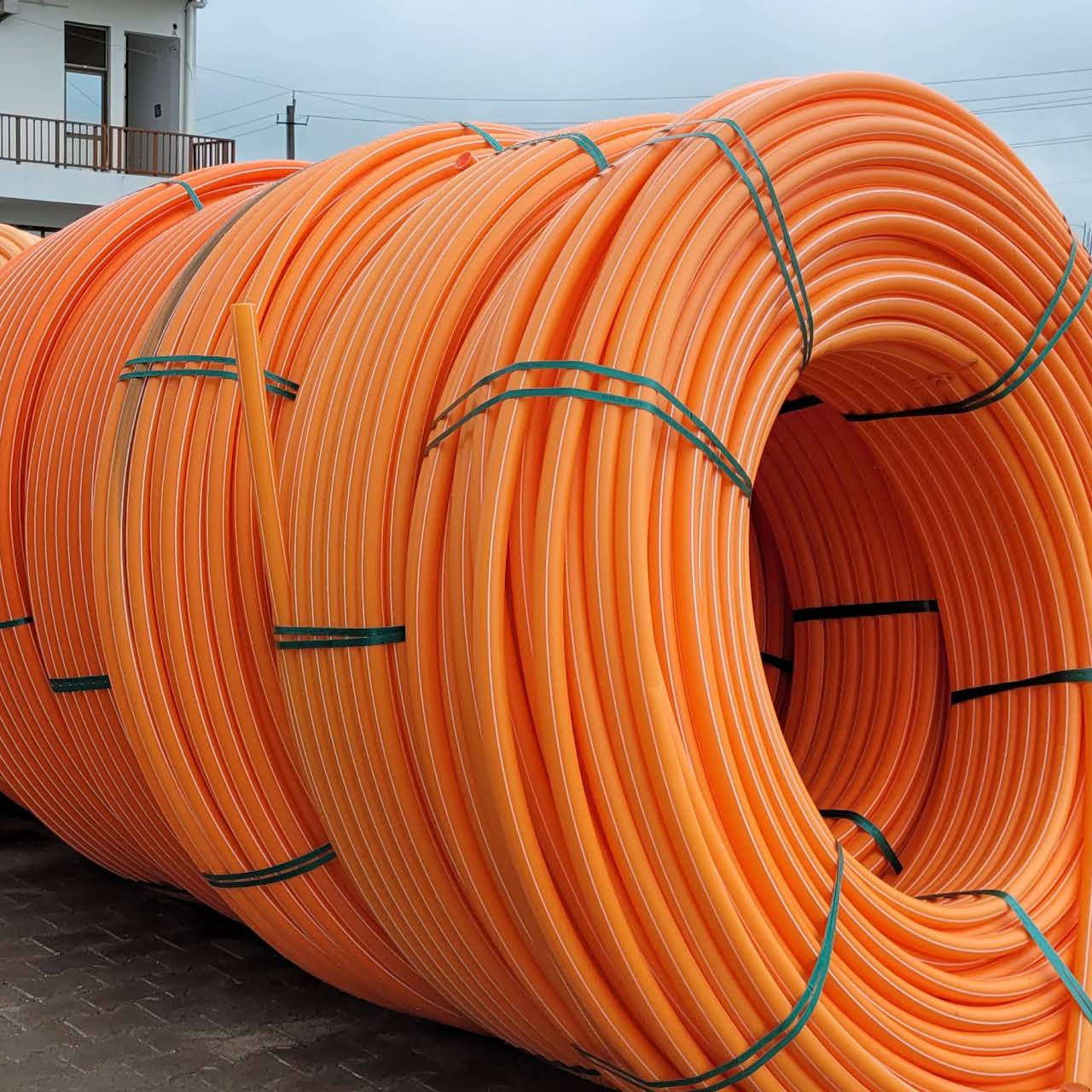Comprehending the Key Advantages of HDPE Pipe for Water and Wastewater Monitoring
Using HDPE pipeline in water and wastewater administration provides various benefits that warrant consideration. Its extraordinary sturdiness and long lifespan make it a preferred selection for lots of jobs. Additionally, the product's resistance to rust and chemical damage boosts its dependability in various settings. Nevertheless, the benefits expand past just long life and resistance. Discovering its cost-effectiveness and environmental influence exposes much more compelling reasons for its widespread adoption in modern-day facilities
Exceptional Toughness and Longevity

HDPE pipe sticks out for its exceptional sturdiness and long life, making it a recommended choice in water administration systems. Created from high-density polyethylene, these pipelines can withstand significant pressure and anxiety, ensuring reputable efficiency gradually. Their durable nature permits them to endure extreme environmental conditions, including temperature changes and soil motions, which can trigger various other products to stop working.
The life expectancy of HDPE pipelines usually goes beyond half a century, giving a cost-effective solution for municipalities and industries alike. Additionally, the material's lightweight residential or commercial properties simplify installation, reducing labor costs and durations. This longevity decreases the demand for constant repair services or substitutes, even more enhancing its economic allure.
In water monitoring applications, the integrity of HDPE pipes implies fewer disturbances and boosted service continuity, making them integral to lasting facilities advancement. The combination of longevity and long life solidifies HDPE's role as a keystone in efficient water management solutions.

Resistance to Corrosion and Chemical Damage
While several products yield to rust and chemical damage over time, HDPE pipelines show exceptional resistance, making them excellent for numerous water administration applications. This durability stems from the molecular framework of high-density polyethylene, which is naturally non-reactive and does not corrode like metals or weaken from direct exposure to severe chemicals. Consequently, HDPE is very effective in settings with aggressive substances, such as wastewater systems that might consist of acids, bases, and organic solvents.
In addition, HDPE pipes can withstand ecological elements such as soil level of acidity and saline conditions, better improving their suitability for varied applications (hdpe pipe fittings Midland TX). Their capacity to maintain architectural integrity with time decreases the threat of leaks and failings, which is vital in ensuring the security and integrity of water distribution and wastewater monitoring systems. Consequently, the resistance to deterioration and chemical damage noticeably contributes to the general effectiveness and durability of HDPE piping remedies
Cost-Effectiveness and Financial Advantages
When taking into consideration the economic implications of water monitoring systems, the cost-effectiveness of HDPE pipes ends up being evident. These pipes supply reduced installment and maintenance expenses compared to conventional materials like steel or concrete. Their light-weight nature simplifies transport and installment, resulting in reduced labor expenditures. Additionally, HDPE pipes display a long life-span, frequently going beyond 50 years, which converts to less replacements and long-lasting cost savings.
The resistance of HDPE to corrosion and chemical damages decreases the demand for pricey fixings and substitutes. The pipelines likewise here support effective water flow, reducing energy prices connected with pumping systems. By minimizing leakages and water loss, HDPE pipelines add to considerable economic benefits for municipalities and sectors alike. On the whole, the first financial investment in HDPE piping can produce substantial financial returns over the life-span of the water monitoring system, making it a prudent choice for lasting framework advancement.
Environmental Sustainability and Reduced Influence

Convenience and Flexibility in Installment
As a result of their unique homes, HDPE pipes use amazing versatility and adaptability in setup, making them ideal for a variety of applications. Their light-weight nature enables less complicated handling and transportation, lowering labor expenses and installment time. HDPE pipes can be bent and shaped to fit numerous terrains and job requirements, which is especially advantageous in testing environments.
Furthermore, their resistance to deterioration and chemical damage enables installation in diverse setups without the need for specialized protective layers. The capability to fuse joints develops a continuous, leak-free system, improving the total integrity and dependability of the installment. HDPE's flexibility likewise suits ground activity, decreasing the danger of damages in areas prone to moving dirt. Overall, these qualities make HDPE pipelines not just functional but likewise a favored selection for water and wastewater monitoring systems.
Frequently Asked Concerns
Exactly How Does HDPE Pipeline Contrast to PVC in Water Monitoring Applications?
HDPE pipeline offers exceptional versatility, resistance to rust, and longevity contrasted to PVC. Its lighter weight facilitates simpler setup, while its long life expectancy minimizes substitute expenses, making HDPE a favored selection in water monitoring applications.
What Is the Life Expectancy of HDPE Water Lines Under Normal Problems?
Under normal problems, HDPE pipes can have a life expectancy ranging from 50 to 100 years. Their sturdiness and resistance to rust contribute to their long-term performance in various applications, making them a dependable choice for infrastructure.
Are HDPE Water Lines Recyclable After Their Life Span?
Yes, HDPE pipes are recyclable after their life span. hdpe pipe suppliers Midland TX. They can be refined and repurposed right into new products, significantly reducing environmental impact and advertising sustainability within the market, making them an environment-friendly option for piping solutions
What Is the Installment Refine for HDPE Pipeline?
The installment process for HDPE pipes entails site prep work, trenching, pipe fusion or mechanical signing up with, backfilling, and pressure screening. Proper strategies ensure a durable and effective system for carrying water and wastewater effectively.
Can HDPE Water Lines Be Used for Both Safe And Clean and Non-Potable Water Systems?
Yes, HDPE pipelines can be used for both safe and clean and non-potable water systems. Their convenience, sturdiness, and resistance to deterioration make them appropriate for numerous applications, guaranteeing secure and efficient transportation of water in various contexts.